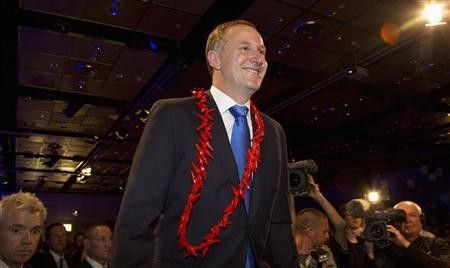New Zealand Foreign Minister’s Refusal To Share Information On Middle East Campaign Angers Opposition

The penchant of New Zealand foreign ministry to function under a cloak of secrecy has drawn criticism from important quarters. The opposition Labour Party targeted foreign minister Murray Mc Cully for his decision not to release any advice he received on the situation in Syria.
The opposition party wanted updates on the involvement of New Zealand in the Middle East. In a statement, Labour MP David Shearer said the blanket refusal of the foreign minister to part with any information on Middle East is "unreasonable and unacceptable", reported Yahoo News.
Political opinion has been divided on the merit of New Zealand getting involved in Middle East against the anti ISIS opeartions led by the U.S and allies. New Zealand had taken a stand of sending a small contingent of special Air Service commandos, as a token participation in Iraq. But had ruled out going to Syria for any sort of campaign.
Denies Information
Minister McCully had been declining requests for information about the options being considered by the government and diplomatic overtures made to the New Zealand government for military assistance. "New Zealanders deserve to know what the country is doing in the Middle East and what it might do with regards to sending troops over there," Shearer said.
Meanwhile, in another instance, the New Zealand government refused to disclose the details of the spending it incurred during the campaign for a non-permanent seat on the UN Security Council. No record of specific expenses has been documented. In the election held in October, New Zealand was a winner and picked up 145 votes and finished ahead of Turkey and Spain in the first round itself.
New Zealand led a vigorous campaign seeking a strong voice for smaller countries. The information released by the Ministry of Foreign Affairs and Trade showed a total expense of less than $600,000 on various campaign bills including spending on brochures, events and the hiring of two contractors, reported Stuff.co.Nz.
No Details On UN Bid
In a statement, the MFAT spokeswoman said the ministry is unable to separate out all costs that were "solely attributable to the campaign." The costs also included outward travel by special envoys and hosting of high-level visitors as part of the Ministry's core business in advancing New Zealand's bilateral and trade interests. "It is therefore not possible to apportion a percentage of the costs associated with these activities to the campaign," she said. The travel costs involved were that of ministers, MPs and many diplomatic envoys.
New Zealand's UN seat campaign was overseen by Foreign minister Murray McCully and backed by a team in which Trade minister Tim Groser, Labour foreign affairs spokesman David Shearer and a number of diplomats were members. It has been reported that McCully's international travel bill was $229,177 in the period between July to September 2014. Minister Groser's travel bill amounted to $89,858 for the same period. But it is assumed that all the travel by the ministers was not related to the UN bid.





















